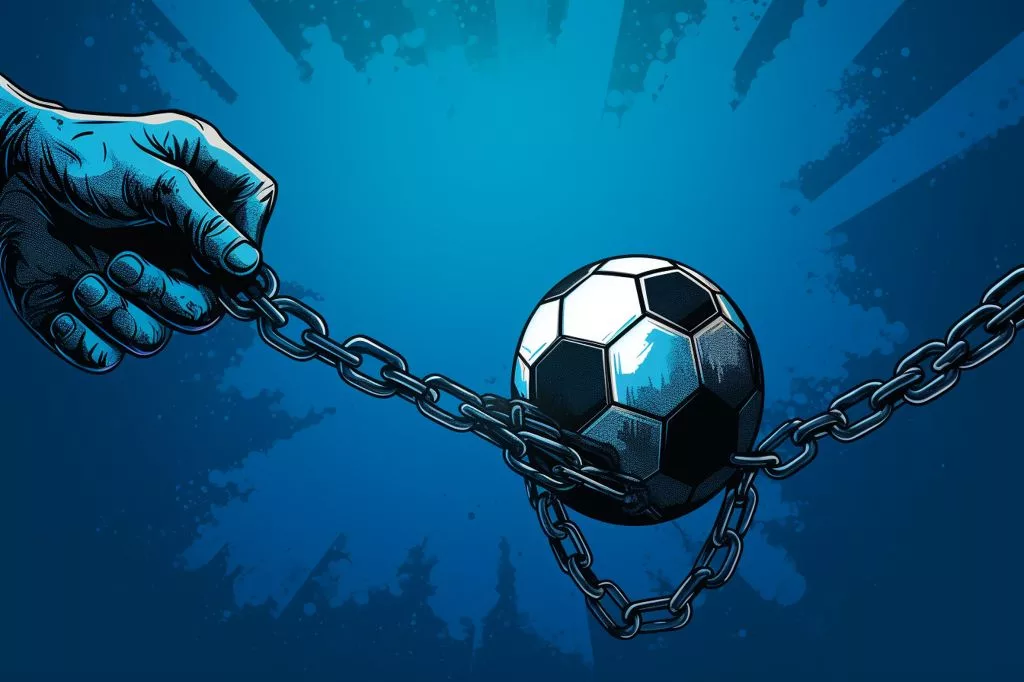Sure thing! Here is the emphasized phrase:
Hugo Broos, the coach of South Africa’s national football team, Bafana Bafana, is criticizing the Premier Soccer League (PSL) for extending the DStv Premiership fixtures until the eve of the Africa Cup of Nations (AFCON). Broos is disappointed by the minimal downtime his players will have before participating in the tournament and argues that he asked the league’s governing body to arrange fixtures until December 23, giving his players some much-needed rest. Broos believes that the PSL’s reluctance to create favorable conditions for team preparation stems from their indifference to the matter.
Question: Why is Bafana Bafana coach Hugo Broos criticizing the Premier Soccer League (PSL)?
Hugo Broos, the coach of South Africa’s national football team, Bafana Bafana, is criticizing the PSL for extending the DStv Premiership fixtures until the eve of the Africa Cup of Nations (AFCON). Broos is disappointed by the minimal downtime his players will have before participating in the tournament and argues that he asked the league’s governing body to arrange fixtures until December 23, giving his players some much-needed rest. Broos believes that the PSL’s reluctance to create favorable conditions for team preparation stems from their indifference to the matter.
Bafana Bafana Coach Expresses Disappointment at Fixture Schedule
Hugo Broos, the outspoken and critical coach of South Africa’s national football team, Bafana Bafana, has once again criticized the Premier Soccer League (PSL) for extending the DStv Premiership fixtures until the eve of the Africa Cup of Nations (AFCON). Broos, who will lead Bafana Bafana to the 2023 tournament in Cote d’Ivoire, is particularly disappointed by the minimal downtime his players will have before participating in the prestigious event.
The well-known coach stated that he would have preferred for his players to have at least a five- or six-day break before the commencement of the esteemed continental competition. However, with the PSL scheduling matches until December 30 and AFCON beginning on January 13, this seems increasingly improbable.
Drawing from his experience as a former coach of Cameroon, Broos saw his team join Group E at AFCON, with Namibia, Tunisia, and Mali. Throughout the process, his requests to the PSL went unheeded. Broos argues that he asked the league’s governing body to arrange fixtures until December 23, giving his players some much-needed rest.
Broos Discusses Players’ Tight Schedule and Importance of Rest
Broos explained the demanding schedule faced by the players, stating, “For some of the big teams, the players would have started playing at the beginning of August, which means they will have played many games,” as reported by Sowetan. He also stressed the significance of giving players six to seven days off if the PSL were to halt on the 23rd, as he had initially proposed.
The Bafana Bafana coach recalls sending a letter to the PSL immediately after the end of the last season, in which he requested the league to conclude on the 23rd. He wondered if his letter had been read, ultimately deducing that it had been ignored. Upon seeing the fixture list, Broos checked the league’s end date and found that it confirmed his suspicions about the PSL’s disinterest in his concerns.
Broos’ habit of criticizing the state of football in South Africa has gained him notoriety, as well as a history of engaging in verbal exchanges with local coaches regarding various issues. According to Broos, the PSL’s reluctance to create favorable conditions for team preparation stems from their indifference to the matter.
Comparing South Africa to Cameroon and Looking Forward
Reminiscing about his time in Cameroon, Broos mentioned that he requested a meeting with the coaches within two weeks of assuming his role as their national team’s head coach, eventually leading to their victory in the 2017 Nations Cup. Conversely, he has requested similar meetings in South Africa on four separate occasions, only for the PSL to postpone them.
This ongoing conflict between Broos and the PSL underscores the challenges faced by national team coaches, who frequently find themselves at odds with domestic league organizations. With AFCON rapidly approaching, it remains uncertain whether Bafana Bafana can overcome these hurdles to perform at their peak on the continent’s most significant stage.
Nevertheless, Coach Hugo Broos remains unwavering in his convictions, advocating for his players’ welfare and the improvement of South African football. Bafana Bafana’s journey to the 2023 AFCON in Cote d’Ivoire will undoubtedly be a challenge, but with their committed coach at the helm, they surely possess the determination and drive to surmount the difficulties posed by the PSL’s stringent fixture schedule.
1. Why is Bafana Bafana coach Hugo Broos criticizing the Premier Soccer League (PSL)?
Hugo Broos, the coach of South Africa’s national football team, Bafana Bafana, is criticizing the PSL for extending the DStv Premiership fixtures until the eve of the Africa Cup of Nations (AFCON). Broos is disappointed by the minimal downtime his players will have before participating in the tournament and argues that he asked the league’s governing body to arrange fixtures until December 23, giving his players some much-needed rest. Broos believes that the PSL’s reluctance to create favorable conditions for team preparation stems from their indifference to the matter.
2. What is AFCON?
AFCON stands for the Africa Cup of Nations, which is a biennial international men’s football championship contested by the national teams of Africa. It is sanctioned by the Confederation of African Football (CAF).
3. What is the DStv Premiership?
The DStv Premiership is the top professional men’s football league in South Africa. It is an affiliate member of the South African Football Association (SAFA) and was formed in 1996.
4. What is the issue with the PSL extending fixtures until the eve of AFCON?
Hugo Broos is concerned that his players will not have adequate rest before participating in AFCON. He argues that the PSL’s reluctance to arrange fixtures until December 23 indicates their indifference to the matter, and he has criticized them for not creating favorable conditions for team preparation.
5. What did Hugo Broos request from the PSL?
Broos requested that the PSL arrange fixtures until December 23, giving his players some much-needed rest before AFCON.
6. Why does Broos believe the PSL is indifferent to the matter?
Broos believes that the PSL’s reluctance to create favorable conditions for team preparation stems from their indifference to the matter.
7. What is Broos’ history with the PSL?
Broos has engaged in verbal exchanges with local coaches regarding various issues and has criticized the state of football in South Africa, gaining him notoriety. He has requested meetings with coaches in South Africa on four separate occasions, only for the PSL to postpone them.
8. What are the challenges faced by national team coaches when dealing with domestic league organizations?
National team coaches frequently find themselves at odds with domestic league organizations, as exemplified by Broos’ ongoing conflict with the PSL regarding fixture scheduling. These conflicts can pose challenges for national teams preparing for international competitions.












